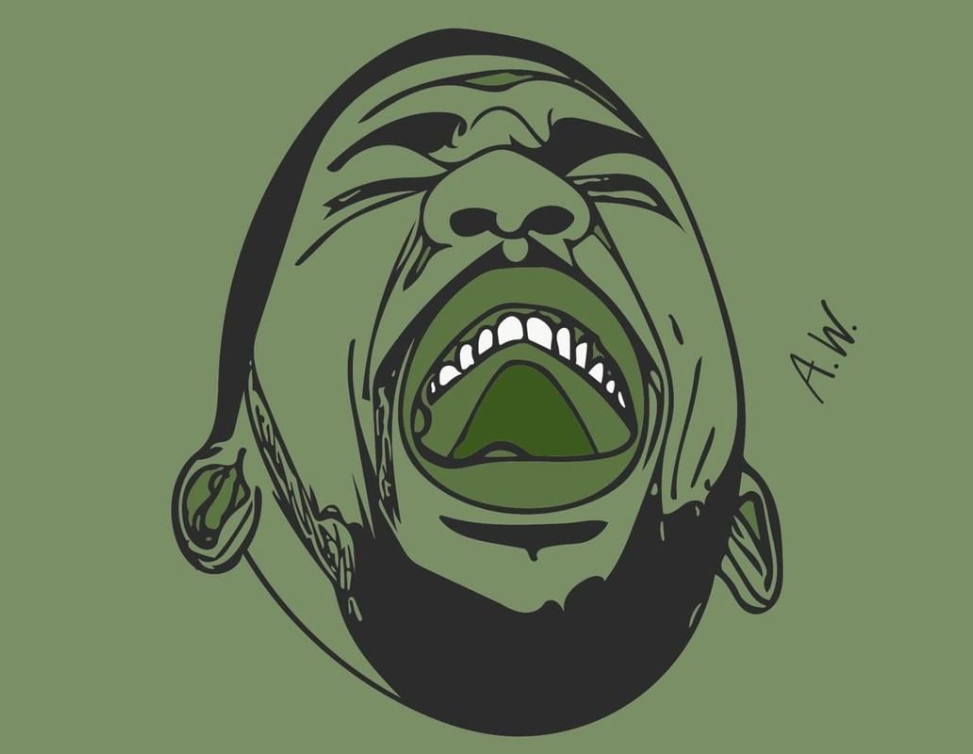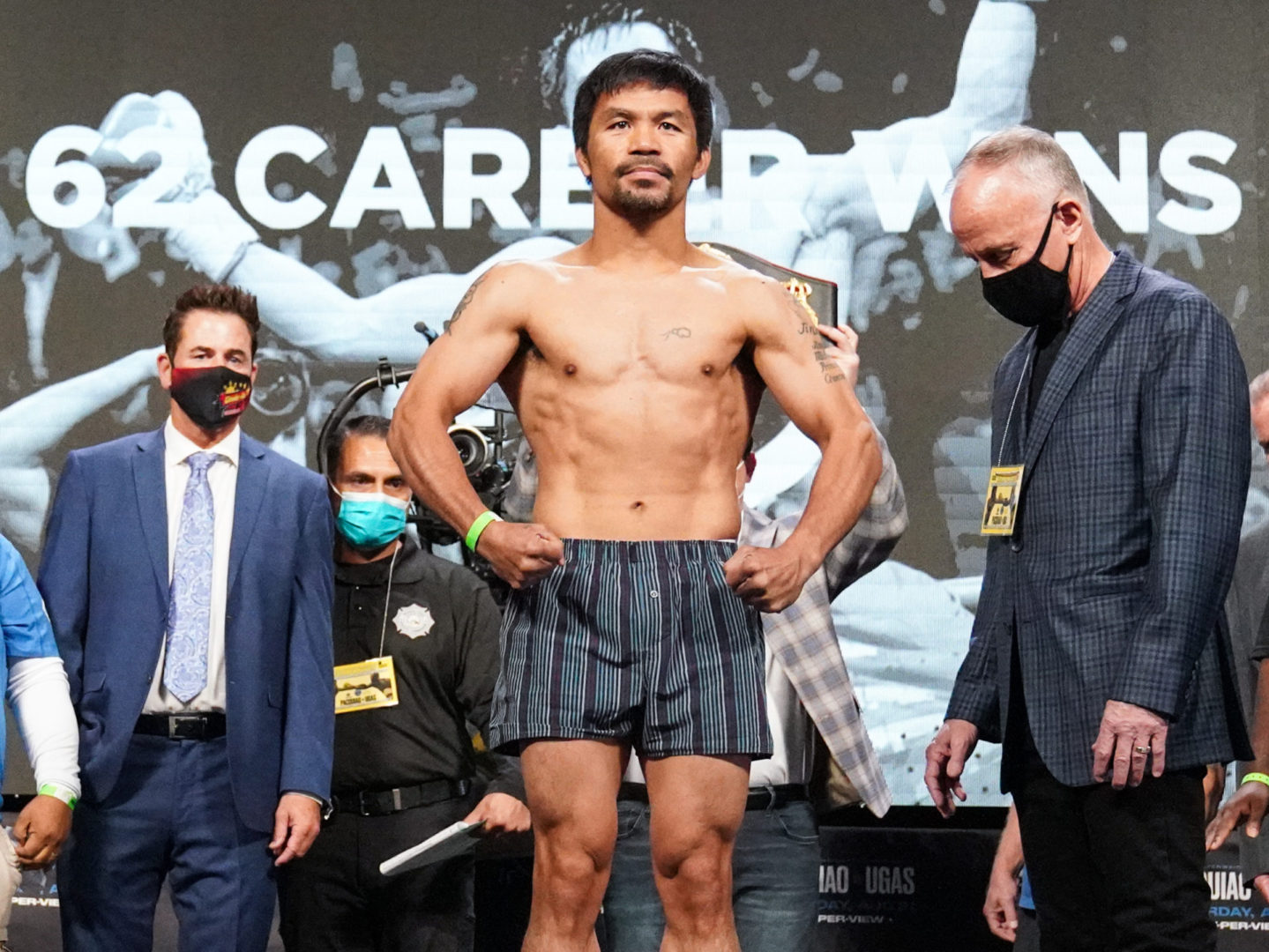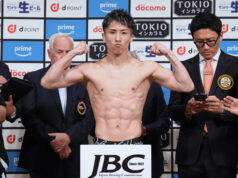By Jimmy Tobin

Heavyweight, Anthony “AJ” Joshua won a unanimous decision over Joseph Parker before a capacity crowd at the Principality Stadium in Cardiff, Wales, Saturday night. The scorecards, lopsidedly in Joshua’s favor, reflected clearly the privilege he enjoys across the pond, but were hardly egregious as a tally that would edge the fight to Parker. So let us not bemoan too long judging that, however predictable, however convenient, renders the proper verdict. Joshua-Parker was anything but an entertaining fight, but the right man won, and if that is scant consolation for a dreadful 12 rounds, it is worth remembering that boxing often fails to provide even that justice.
It takes two earnest fighters to deliver a spectacle—no, wait, that is not what Saturday taught us, is it? No, the alchemy of the spectacular includes two parts earnest fighter and one part competent referee—and Saturday proved that by means of negation. Referee Giuseppe Quarterone injected himself into the action with a frequency and timing that left the fighter’s themselves confused. Too often he shimmied between Joshua and Parker, who took barely a step back between them, expressing not quite intent befitting the moment, but indifference enough Quarterone’s involvement as to make that involvement merely intrusive. The least a referee in a dull fight can do is become invisible when aggression percolates through the drudgery. Yet it was at these times that Quarterone was impossible to miss.
But enough about the officiating: it, like the judging, showed a preference for Joshua, but not one he needed to secure victory. Besides, referees, like judges, can be rendered irrelevant by the action. That involves some danger, of course, something neither Joshua nor Parker was particularly compelled to tempt.
Parker found enough success with his jab, his feints, his counters to make Joshua largely holster his weapons. But when the moment came to capitalize on that success, to add a right hand to the double jab, or weave inside behind it, when the moment for daring arrived, Parker passed. If his was a winning strategy, it might conceivably be expected to have won him the fight; yet Parker only fought to win until it became clear that his plan, absent the quantum of spirit demanded by the stakes, was not a winning won—whereupon he settled for a moral victory, handing Joshua his first decision win.
Nor is Joshua absolved of his role in what was his first eminently forgettable fight. He may have opened up enough to wed Parker to his inconsequential mix of jabbing and feinting, but when it was clear that Parker was either content to lose or unable to win, Joshua, perhaps because he was unnerved, perhaps because he was at a loss for how to deliver a stoppage, perhaps because he was content to coast, simply chaperoned Parker to defeat. He must reckon every fight, the future of boxing, not only with his opponent but with the expectations he has engendered and profited from, and on this night fell markedly short of the latter.
Is Joshua suspect then? Hardly. Had he knocked stiff Klitschko, Takam, and then Parker, he would earn, even grudgingly, the respect of his critics. Yet somehow, wins over all three, including stoppages of Klitschko (inarguable) and Takam (suspect) diminish significantly Joshua’s present and potential. Strange that, especially from those who hold Parker in some esteem. There is a chance Joshua benefitted from his history with Klitschko, their sparring sessions instilling in Joshua the confidence to take forcibly the mantle. Takam though has made a few bones begriming idols of late and Parker is fighter enough to trouble anyone in the division.
It would appear then, that Joshua is one of the few fighters denied the charity of a difficult night. He was an accomplice Saturday, yes, and that might be crime enough to deep-six him were he the only champion ever guilty of it, were he not in but his twenty-first fight, were the style matchup not so poor—were he defeated or even clearly hurt. Grant-Golota this was not. How quickly people discredit a fighter for simply winning. Better a return to the days of Tyson Fury? Have you forgotten what a miscarriage of violence his title-winning performance against Klitschko was? And the carnival that was his defenseless title reign?
Such short memories. Boxing, perhaps more than any other sport, makes us prisoners of the moment. Something about the action, the way the image of one man unmaking another (or not) not only refashions our recollection of the past but, often with too little evidence, manipulates our projections into the future. The schedule conspires here as well, for with so many quiet months between fights a fighter’s last performance often becomes his defining one—until, of course, he fights again and that definition changes, until the irons of another moment shackle us to its message. You can see this process at work with Joshua: reverse the order of his last three fights so that he rebounds from his first decision win over Parker to knockout Takam and Klitschko and how easily does Joshua defeat incumbent nemesis, Deontay Wilder? As if Joshua or his future has changed so drastically over the course of a year.
Matchmaking will set Joshua again on his concussive way, because Eddie Hearn understands that the best way to remedy a bad night is to give people something else to talk about and, more importantly, because the list of opponents who can stymie Joshua is short. Soon after Joshua will make the fight everyone wants from him. And the moment that night will imprison us, and perhaps even the fighters, for some time.











